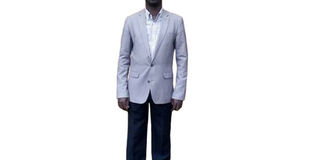Which way Uganda on citizen empowerment?

Robert Mugabe
What you need to know:
- Conundrum. There obviously needs to be regime change. How shall we cause regime change? Through elections, civil disobedience, armed insurrection or dialogue? It is very hard to know which route to follow in the circumstances.
There is no debate about Uganda’s beauty status in the world. Former British prime minister Winston Churchill settled that debate long ago when he said Uganda was “the Pearl of Africa.”
We have one of the most beautiful weather in the whole wide world. We are endowed with some of the most precious mineral resources the world craves for; gold, diamond, manganese, copper, cobalt, oil and gas, name it. We have some of the most fertile soils and industrious people.
However, in spite of all these endowments, we have failed to pull out the vast majority of Ugandans from a life of misery and indignity. Only the few who control the levers of power have successfully ‘liberated’ themselves from these afflictions.
We fight viciously against each other to gain control of the State so as to enrich ourselves rather than change the lot of our people. We have thus far failed to find a harmonious way of living together as citizens of a sovereign nation.
Peaceful political transition has eluded us for all the years we have been independent. Here, I am not only referring to peaceful change of power. Certainly, peaceful change of power is an imperative for political stability but peaceful political transition is broader than that. The former is indeed an important ingredient of the latter. The latter refers to structural transformation of politics from serving selfish ends to serving the public good.
How can we, therefore, rid Uganda of violent change of power? How do we transform our politics? The solution obviously lies in creating strong government and State institutions. But to achieve that, we need an empowered citizenry whose voice can be heard and respected by the rulers. How do we create an empowered citizenry?
Through building strong, organised and institutionalised citizen agencies such as trade unions, professional associations, cultural institutions, faith-based organisations and most importantly, political parties.
But how shall we create these citizen agencies? This is at the heart of the conundrum. There obviously needs to be regime change. How shall we cause regime change? Through elections, civil disobedience, armed insurrection or dialogue? It is very hard to know which route to follow in the circumstances.
Nevertheless, anything that could lead to another spate of bloodletting must be avoided. So in attempting to answer these questions, let’s borrow a leaf from jurisdictions that faced similar dilemmas. Kenya and South Africa come to mind quickly.
Daniel arap Moi ruled Kenya with an iron fist for more than two decades. Several attempts to remove him through the ballot yielded no fruits whatsoever. This was for mainly two reasons. First, Moi constructed an election management system that was primarily to do his bidding. It served him, not Kenya. Second, the Kenyan Opposition was deeply fractured. To overcome these challenges, the Opposition united as one voice against Moi’s dictatorship. Subsequently, they resolved to fight for constitutional reforms until the election landscape was levelled.
The rest, as they say, is history. Arap Moi was beaten even after planting a regime stooge in the election. There is another example. The African National Congress (ANC) agreed to participate in the 1994 general election only after thorough negotiations that gave birth to a new constitutional order which, among other things, levelled the ground for fair electoral competition for all political actors.
In both jurisdictions, change seekers appreciated the fact that it was unnecessary to participate in porous electoral processes that would not have guarantees and or safeguards for being free, fair or credible.
In all these, they had of course, mobilised the population sufficiently to mount enough pressure on the reigning regimes to acquiesce to a negotiated settlement. They made sure that the regimes had no alternative but to dialogue with the Opposition in order to level the ground for fair political contest.
I may be naïve, but how does one participate in an electoral process whose outcome can be predicted with near scientific precision? More so, when one has engaged in the same process and achieved the same outcome for donkey’s years. It beats logic. It beats common sense. It beats science. In Albert Einstein’s words, doing the same thing over and over again expecting a different result is a sign of madness.
Ugandans must object to sham elections but rather route for elections whose outcome will reflect the will of the people. That, I believe, is the way Uganda.
Mr Mugabe is a member of the Alliance for National Transformation party
[email protected]
Prof Kanyeihamba returns next week




